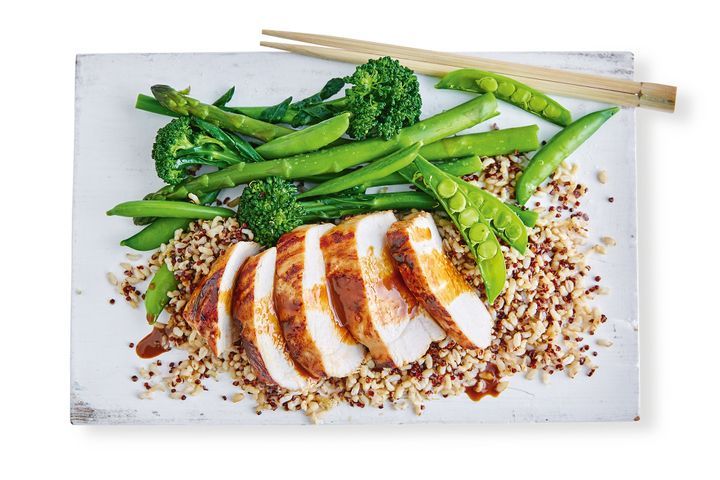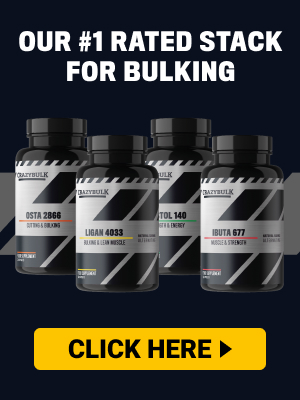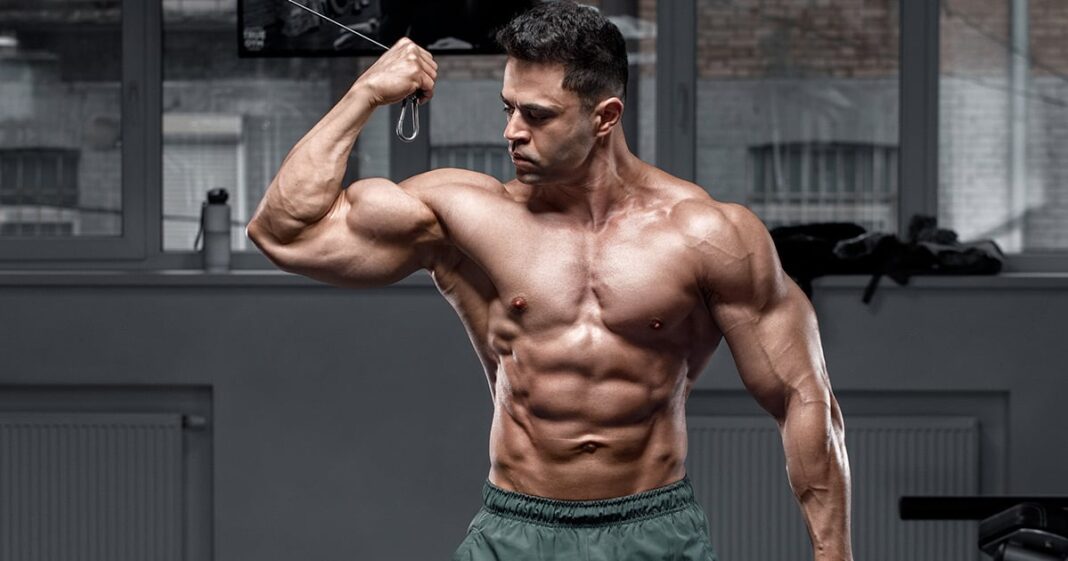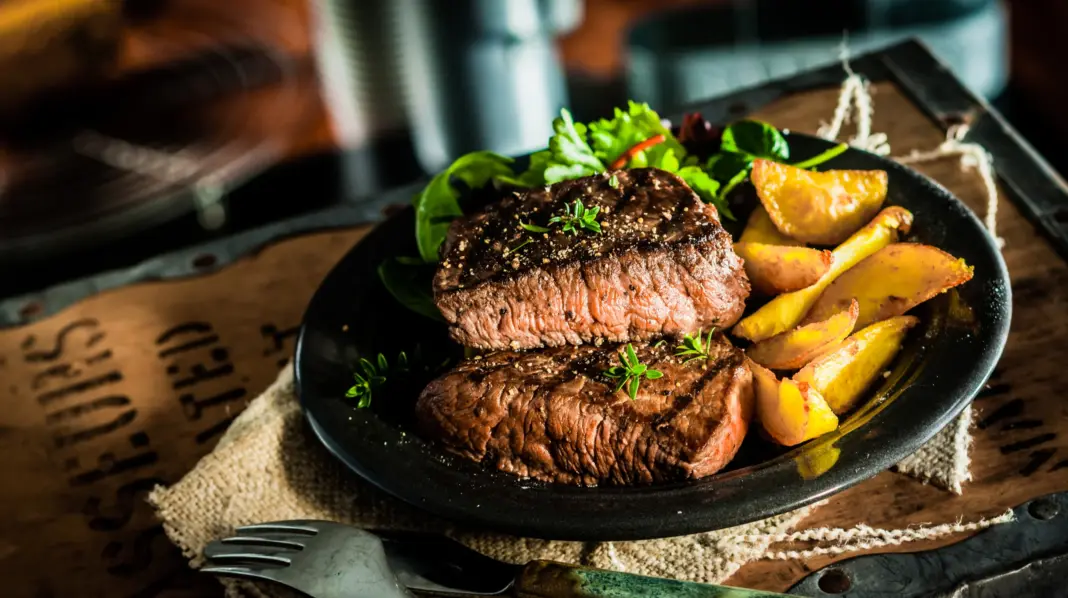Building the Perfect Muscle-Building Meal Plan
If you’ve nailed your training program but your gains have stalled, the missing piece probably isn’t in the gym — it’s in the kitchen.
A great muscle-building meal plan doesn’t just “hit macros.” It fuels performance, recovery, and consistent progress over time.
In this guide, you’ll learn how to build your own muscle-building meal plan step-by-step, including:
- How many calories you need
- How to split your protein, carbs, and fats
- When to eat for best recovery
- Example meal templates for 3,000 and 2,500 calories
Let’s turn nutrition from guesswork into a system.
⚙️ Step 1: Set Your Calorie Target
To build muscle, you need a caloric surplus — eating more than your body burns.
The sweet spot is around +250 to +500 calories per day above maintenance.
That’s enough to support growth without unnecessary fat gain.
🧮 Calculate Your Maintenance (TDEE)
If you haven’t yet, use your TDEE (Total Daily Energy Expenditure):
TDEE = BMR × Activity Multiplier
| Activity Level | Multiplier |
| Sedentary | 1.2 |
| Lightly Active | 1.375 |
| Moderately Active | 1.55 |
| Very Active | 1.725 |
| Extremely Active | 1.9 |
Example:
- 80 kg (176 lb) male
- 1.55 activity factor
- Maintenance = 2,700 calories
- Surplus = +300 calories
➡️ Target: 3,000 calories/day for muscle gain
🧩 Step 2: Set Your Macros
Macronutrients drive results — not just total calories.
| Macro | % of Calories | Example (3,000 cal) | Function |
| Protein | 25–30% | 180–200g | Muscle repair & growth |
| Carbs | 45–55% | 340–400g | Energy & recovery |
| Fats | 20–30% | 65–90g | Hormones & joint health |
Quick Formula
- Protein: 2.0–2.2 g/kg bodyweight
- Fat: 0.8–1.0 g/kg bodyweight
- Carbs: Fill the rest of your calories
🥩 Step 3: Choose Whole, Nutrient-Dense Foods
Muscle isn’t built on junk calories. Prioritize high-quality, minimally processed foods that digest well and support recovery.
🥩 Protein Sources
- Chicken breast, turkey, lean beef
- Eggs & egg whites
- Fish (salmon, tuna, cod)
- Greek yogurt, cottage cheese
- Whey or plant protein powder
🍚 Carbohydrate Sources
- Oats, rice, quinoa, potatoes
- Whole grain bread or pasta
- Fruits and berries
- Vegetables for fiber and micronutrients
🥑 Healthy Fat Sources
- Olive oil, avocado, nuts, seeds
- Fatty fish (salmon, mackerel)
- Whole eggs, grass-fed beef
🧂 Bonus Nutrients
- Sodium for performance and hydration
- Creatine for strength and recovery
- Omega-3s for inflammation control
🕐 Step 4: Meal Timing & Frequency
Contrary to old-school bro science, you don’t need to eat every 2 hours.
The goal is steady nutrient availability across the day.
🔹 3–5 Meals per Day
- 3 large meals if you prefer simplicity
- 5 smaller meals if you have a high calorie target
🕐 Example Schedule
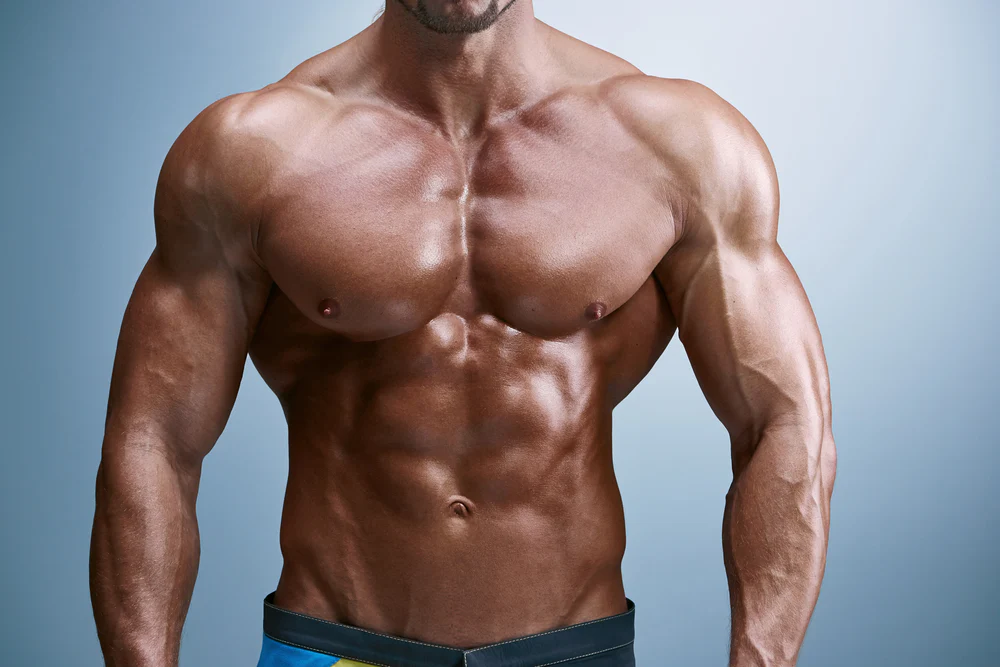
| Time | Meal | Focus |
| 7:00 AM | Breakfast | Protein + complex carbs + healthy fats |
| 11:00 AM | Lunch | Lean protein + carbs + veggies |
| 3:00 PM | Pre-Workout | Carbs + protein, low fat |
| 6:00 PM | Post-Workout | Fast-digesting carbs + protein |
| 9:00 PM | Dinner | Protein + moderate fat for overnight recovery |
💪 Step 5: Pre- and Post-Workout Nutrition
Training nutrition can make or break your recovery.
⚡ Pre-Workout (1–2 hours before):
- Lean protein (chicken, egg whites, whey)
- Fast-digesting carbs (rice, oats, banana)
- Avoid heavy fats that slow digestion
Example:
Chicken + rice bowl or a whey shake + oats
🔄 Post-Workout (within 1 hour):
- Fast protein + high-GI carbs
- Replenish glycogen and stimulate protein synthesis
Example:
Whey shake + banana, or salmon + white rice
🥗 Step 6: Sample Muscle-Building Meal Plans
🧱 3,000-Calorie Muscle Gain Plan
| Meal | Food | Macros |
| Breakfast | 3 whole eggs, 100g oats, banana | 40P / 70C / 20F |
| Lunch | 150g chicken, 200g rice, olive oil | 45P / 80C / 15F |
| Snack | Greek yogurt + 30g walnuts | 25P / 15C / 20F |
| Dinner | 200g salmon, 250g sweet potato, veggies | 50P / 60C / 20F |
| Post-Workout Shake | Whey + banana + oats | 35P / 50C / 5F |
| Total | — | 195P / 275C / 80F ≈ 3,000 kcal |
🧱 2,500-Calorie Lean Bulk Plan
| Meal | Food | Macros |
| Breakfast | 2 eggs + 4 egg whites, oats, blueberries | 35P / 55C / 15F |
| Lunch | Ground turkey, rice, olive oil | 40P / 70C / 15F |
| Snack | Protein shake + almond butter toast | 30P / 35C / 15F |
| Dinner | Cod + quinoa + veggies + avocado | 40P / 60C / 20F |
| Before Bed | Cottage cheese + peanut butter | 25P / 15C / 10F |
| Total | — | 170P / 235C / 75F ≈ 2,500 kcal |
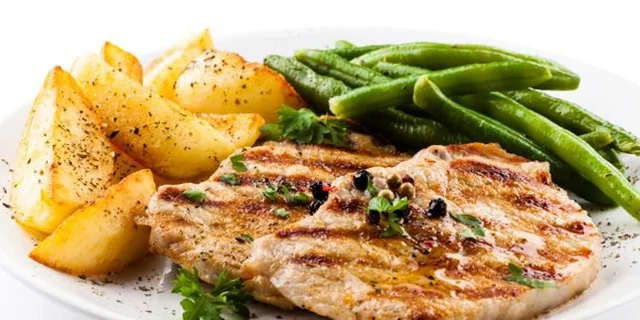 🧠 Step 7: Adjust Based on Progress
🧠 Step 7: Adjust Based on Progress
Nutrition isn’t static. Track changes in body weight, strength, and energy every 2–4 weeks.
🔹 If you’re not gaining:
- Add +150–200 calories/day (preferably from carbs)
🔹 If you’re gaining too much fat:
- Reduce by 150–200 calories/day
Remember:
Muscle growth = slow process.
Aim for ~0.25–0.5 kg (0.5–1 lb) gain per week for clean bulking.
🔁 Step 8: Optimize Meal Prep & Consistency
Consistency beats perfection.
Meal prepping ensures you hit your macros even on busy days.
🧂 Tips for Meal Prep Success
- Cook proteins in bulk (chicken, beef, fish)
- Weigh or measure portions initially
- Rotate food sources every 1–2 weeks
- Keep quick options on hand (tuna packets, protein shakes, nuts)
✅ Key Takeaways
- Build your meal plan around total calories + macros
- Eat 20–30% fats, 25–30% protein, 45–55% carbs
- Spread meals evenly across the day
- Prioritize pre/post-workout nutrition
- Track and adjust every few weeks based on progress
🔗 Related Articles
- The Fundamentals of Muscle-Building Nutrition
- How to Calculate Your Calories for Muscle Growth (TDEE Guide)
- Protein for Muscle Growth: How Much Do You Really Need?
- The Role of Carbs in Building Muscle
- The Role of Fats in Muscle Growth and Hormone Health

